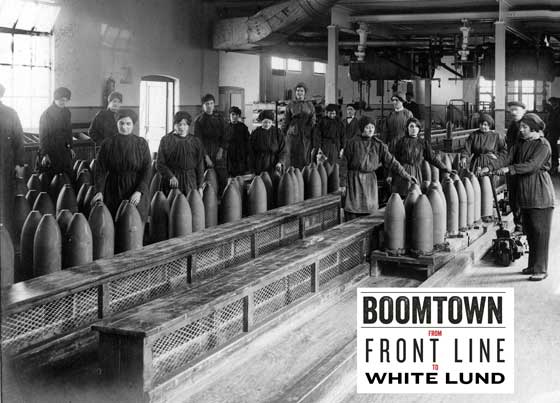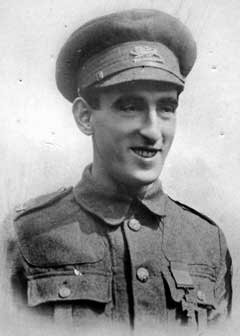The Great War Centenary
1917 - ExhibitionBoomtown - From
Front Line to White Lund
King’s Own in Mesopotamia

The 6th Battalion King’s Own Royal Lancaster Regiment was raised in
1914 as a result of Lord Kitchener’s appeal for 100,000 volunteers and
served in Gallipoli between July and December 1915, when it was
withdrawn to Egypt along with the remainder of the Allied Force.
In 1914 an Expeditionary Force from India had been sent to Persia and
Mesopotamia (Iran and Iraq) to protect oil supplies. After initial
success the force under General Townshend was defeated at the Battle of
Ctesiphon, near Baghdad and retreated to Kut where, in December 1915, it
was besieged by the Turks.
In February 1916 the 6th Battalion left Egypt as part of the 13th
Division which aimed to relieve Kut and, after landing at Basra,
proceeded to the advanced base at Amara. The relieving force was
defeated three times and on 29th April 1916 Kut fell to the Turks. Ten
thousand British and Indian troops surrendered of whom over six thousand
died in the desert whilst prisoners of war.
In difficult conditions the British force remained in Mesopotamia,
slowly making advances, and early in 1917 Kut was eventually re-taken.
The Turks continued to be pushed back and, in March 1917, Baghdad was
occupied. The 6th King’s Own was present at the crossing of the Dialah
River, during which Private White, of the battalion, was awarded the
Victoria Cross.
With the loss of Baghdad the Turks continued to retreat and the final
actions took place in the spring of 1918 with 6th King’s Own pushing as
far north as Kirkuk before the weather again became too hot for action.
“The men were beginning to feel the effects of the climate.
Small-pox, malaria, sand-fly fever and Baghdad boils were endemic, while
cholera, typhus, scurvy and heat stroke were epidemic. Even at that
comparatively cool time of the year the battalion lost an officer and
forty-two other ranks in under a month with no shot fired.”
“Nights were bitterly cold and days insufferably hot; the dust and
glare of the sun combined with the flies were worse than anything
suffered at Gallipoli. The flies were tiny and settled on eyelids,
lashes, lips and nostrils. A hand passed across a sweaty brow would roll
them up in little balls.”

Private Jack White VC
Accession Number: KO1017/109
Victoria Cross awarded to 18105 Private Jack
White
6th Battalion King’s Own Royal Lancaster Regiment
Jack White was born Jacob Weiss on 23rd December 1896 in Leeds, the son
of a Russian Jewish immigrant father and British mother. The family
subsequently moved to the Hightown district of Manchester. At the
outbreak of war he was in Sweden, but returned, enlisted in the 6th
(Service) Battalion King’s Own and served throughout the war in the
Middle East - at Gallipoli and in Mesopotamia (Iraq). He was awarded the
Victoria Cross for gallantry during an attempted crossing of the Dialah
River by Captain S. Patterson and 60 men of the Battalion, including
White, on the night of 7/8th March 1917. The award was published in the
‘London Gazette’ of 27th June 1917:
“For most conspicuous bravery and resource. This signaller during an
attempt to cross a river saw the two pontoons ahead of him come under
heavy machine-gun fire, with disastrous results. When his own pontoon
had reached mid-stream, with every man except himself either dead or
wounded, finding that he was unable to control the pontoon Private White
promptly tied a telephone wire to the pontoon, jumped overboard, and
towed it to the shore, thereby saving the Officer’s life and bringing to
land the rifles and equipment of the other men in the boat, who were
either dead or dying.”
He returned home to a hero’s welcome and was one of only five Jewish men
to win the Victoria Cross up to 1939.
After the war he lived in Broughton, Salford, and worked in the textile
business. He died on 27th November 1949, aged 54, and was buried with
full military honours in Blackley Jewish Cemetery near Manchester.
© Images are copyright, Trustees of the King's Own Royal Regiment Museum.
You must seek permission prior to
publication of any of our images.
Only a proportion of our collections
are on display at anyone time. Certain items are on loan for display
in other institutions. An appointment is required to consult any of
our collections which are held in store.



